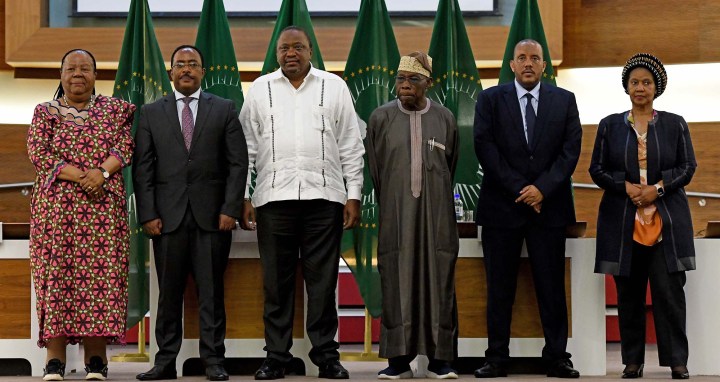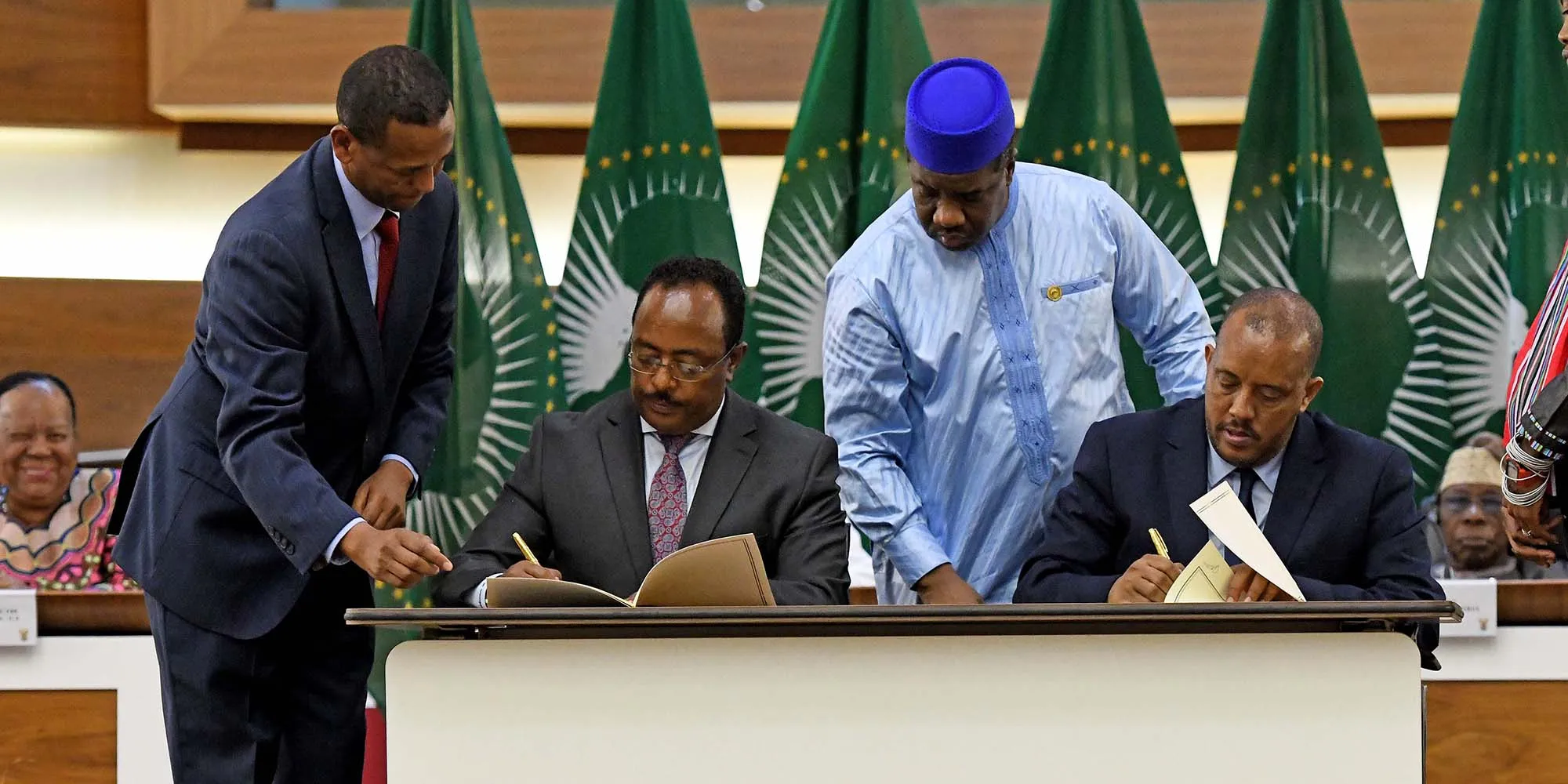MEDIATION
Warring Ethiopian parties silence the guns by signing historic peace agreement in Pretoria

The chief mediator of the African Union-led peace talks, former Nigerian president Olusegun Obasanjo, hailed the agreement as ‘the beginning of a new dawn for Ethiopia, for the Horn of Africa and indeed the whole of Africa’.
The Ethiopian government and its Tigray People’s Liberation Front (TPLF) enemies signed a historic peace agreement in Pretoria on Wednesday, committing to end two years of bitter and bloody warfare.
The warring parties agreed after 10 days of intense negotiations, “to permanently silence the guns”, to disarm and demobilise the combatants of the TPLF and to reintegrate them into the Ethiopian government army.
“The conflict has brought a tragic degree of loss of lives and livelihoods and it is in the interest of the entire people of Ethiopia to leave this chapter of conflict behind and live in peace and harmony,” the two sides said in a joint statement.
The chief mediator of the African Union-led peace talks, former Nigerian president Olusegun Obasanjo, hailed the agreement as “the beginning of a new dawn for Ethiopia, for the Horn of Africa and indeed the whole of Africa”.
He also cautioned that the agreement was not the end of the peace process but just the beginning.
“Implementation of the peace agreement signed today is critical to the success of the process,” said Obasanjo.
The two-page, 12-paragraph “Agreement for the Lasting Peace and Permanent Cessation of Hostilities” also included a commitment by the federal government of Ethiopia to restore the services and humanitarian supplies it had cut off from the northern Tigray province during the war.
Both sides signed up for the restoration of law and order and the protection of civilians, especially women, children, and other vulnerable groups, Obasanjo explained at the signing ceremony in the venue of the peace talks, South Africa’s Department of International Relations and Cooperation.
In a joint statement read out by the head of the Ethiopian government negotiating team, Redwan Hussein, and the head of the TPLF negotiating team, Getachew Reda, the two sides said they had also agreed to implement transitional measures, including the restoration of constitutional order in Tigray, a framework for the settlement of political differences and a transitional justice policy framework to ensure accountability, truth, reconciliation and healing.

Redwan Rameto (second from left), representative of the Ethiopian government, and Getachew Reda (far right), representative of the Tigray People’s Liberation Front (TPLF), sign a peace agreement between the government of Ethiopia and the Tigray People’s Liberation Front on 2 November 2022 in Pretoria, South Africa. (Photo: Jacoline Schoonees / Dirco)
Visit Daily Maverick’s home page for more news, analysis and investigations
“To start implementing these undertakings without delay, we have agreed to stop all forms of conflicts and hostile propaganda,” the joint statement reads. The two sides urged all Ethiopians at home and abroad to support the agreement, to “stop voices of division and hate and mobilise their resources for economic recovery and rehabilitation of social bonds”.
The statement also significantly noted that “it is fundamental that we reaffirmed our commitment to safeguarding the sovereignty and territorial integrity of Ethiopia and to upholding the Constitution of the Federal Democratic Republic of Ethiopia.
“Thus, Ethiopia has only one national defence force,” the agreement added, before describing how TPLF forces would be integrated into the national army. Reaffirming “the sovereignty and territorial integrity of Ethiopia” also underscored the TPLF’s commitment to a single Ethiopian state, relinquishing the secessionist tendencies which some had harboured.
South Africa’s minister of international relations and cooperation, Naledi Pandor, said the agreement “gives hope that as Africa we can silence the guns throughout the continent”. She said the cessation of hostilities must lead to enduring peace and South Africa was ready to continue supporting that process.
Pandor admitted she had been reluctant to host the talks but President Cyril Ramaphosa had insisted, saying South Africa had no choice. Obasanjo was supported in his mediation by former Kenyan president Uhuru Kenyatta and former South African deputy president Phumzile Mlambo-Ngcuka.
The UN special envoy for the Horn of Africa, Hanna Tetteh, speaking for herself and the other observers to the talks — the US special envoy for the Horn of Africa, Mike Hammer, and the executive secretary of the Intergovernmental Authority on Development, Workneh Gebeyehu — also stressed that the agreement was just the beginning of the peace process.
“Implementation will require greater collaboration and actions to build confidence, to return your beautiful and great country to peace. This is an opportunity to chart a new course. The young men and women who have been mobilised to fight will now have a chance to return to their homes and their families.
“They will not have to live with the fear that this day could be their last. And their families will bless you for creating the conditions for them to be with their children.” DM















 Become an Insider
Become an Insider
Knowing the dynamics of African politics and peace agreements have to be cautiously welcomed because of the tendency to unravel as soon as they are signed. We have such an experience in the DRC, the Great Lakes Region, South Sudan and in West Africa. We have to wait for the implementation process of these agreements and be cognisant of attitudes on the ground that have developed over the conflict that can make them very difficult to implement as we have seen in South Sudan. One has taken note of the statements of the US Ambassador to the UN on the conflict and one had hoped that the peace agreement under Chapter VI would have a Chapter VII enforcement and a Responsibility to Protect that would see the protagonists exercising restraint and having a stick to remain in the process and see it through. Albeit, it is to be welcomed though with caution.
Silencing the guns on the African continent is a prerequisite for peace and development. The many conflicts are a drag to the continent’s development.